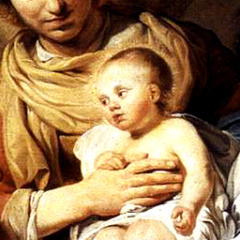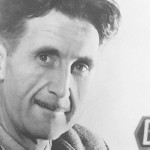
It started the the day before with Felicity puking. Then Fionn came down with it.
After he threw up more than a dozen times, he woke up several more times with night terrors. And then Jonah joined in. Ah, yes. There’s nothing quite like a stomach bug for the holidays.
The next morning, while I was cleaning things up and getting ready for the day, Pandora played carols in the corner. “Silent Night” started. Don’t mock me, I thought. It was not a silent night. All was not calm. And all was not bright.
But as I wiped down yet another surface with Lysol I kept thinking. Maybe it was not a silent night, but maybe it was a holy night.
The Incarnation
Christmas invites us to contemplate the mystery of the Incarnation, God taking on human flesh, Christ adding our nature to his own. We limit the meaning of Christmas when we hem its dimensions to Jesus merely coming to forgive our sins. That surely happened, yes. But that’s part of a larger program.
Christianity is fundamentally about remaking the human person, which was corrupted in Adam and finds its restoration in Christ. That is how and why Paul can call us new creations.
We could never accomplish such a feat for ourselves. The miracle of Christmas — the ineffable wonder of the Incarnation — is that in God’s love and mercy he determined to enter our world and do it for us.
He would assume our nature and heal it from the ground up, from the inside out. And the nature he took upon himself — took up into himself — was the same frail nature that gets sick and throws up, the one that can’t hold itself together.
Healing human nature
Christ came to “heal and teach,” says Athanasius the Great. How? He took a body and “sanctified it by His indwelling” (On the Incarnation 43).
For our sakes the Great Physician hungered and thirsted, he wearied and wept, he slept and endured pain (Gregory Nazianzen, On the Nativity of Christ 15). “[H]e has borne our grief, and carried our sorrows,” as Isaiah 53.4 says. He knows our needs and has worked to meet them.
And so our hearts echo the hymn of Ephraim the Syrian:
Glory to the Spiritual One Who was well-pleased
that His Child should become a body so that through Him His power might be felt
and that the bodies of His kindred might live again.Blessed is He Whose will brought Him
to the womb and to birth and to the bosom and to growth.
Blessed is He Whose changes revived our humanity.Let us glorify Him Who watched and put to sleep our captor.
Let us glorify the One Who went to sleep and awoke our slumber.
Glory to God the Healer of human nature.(Hymns on the Nativity 3.3, 6, 19)
So maybe it was a holy night, if not so silent. It was a night in which the Holy Spirit reminded me of what Christ had really come to do.
Christ took our burdens upon himself so we could walk unbowed. He took our frailties to grace us with his majesty. He took our nature to give us a taste of his own. Glorify him!












